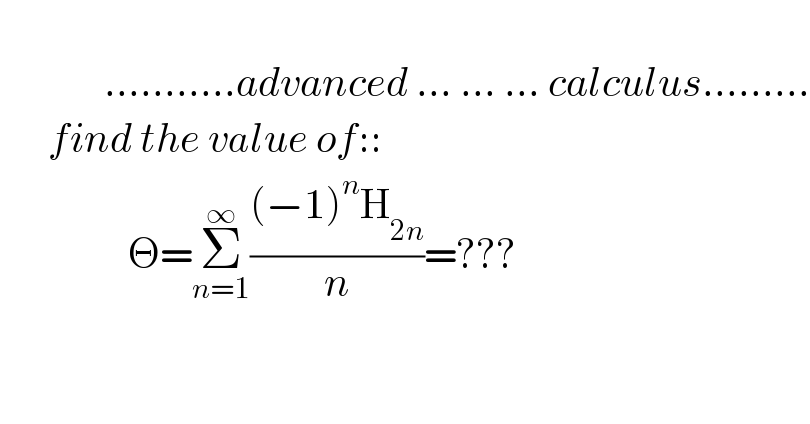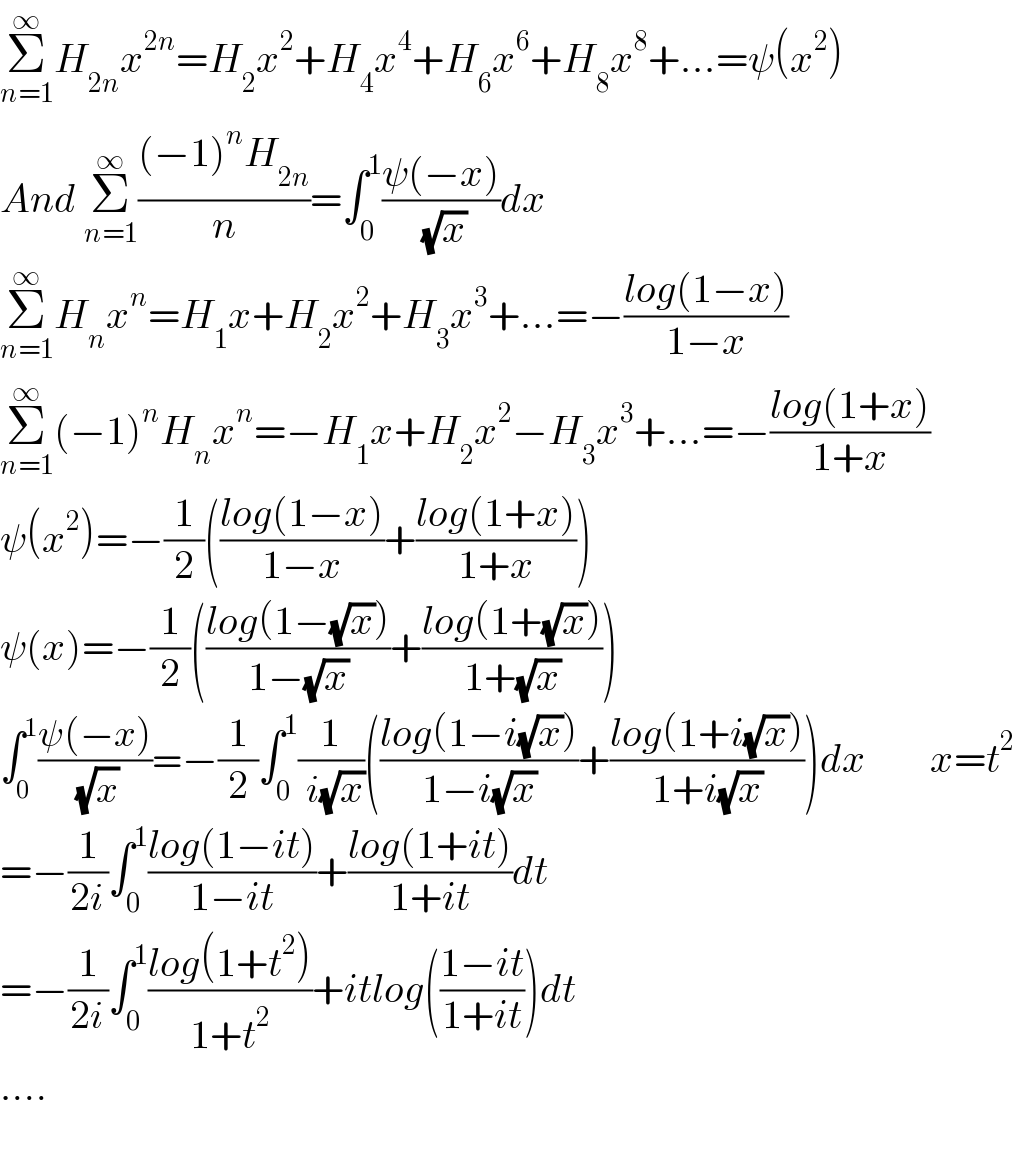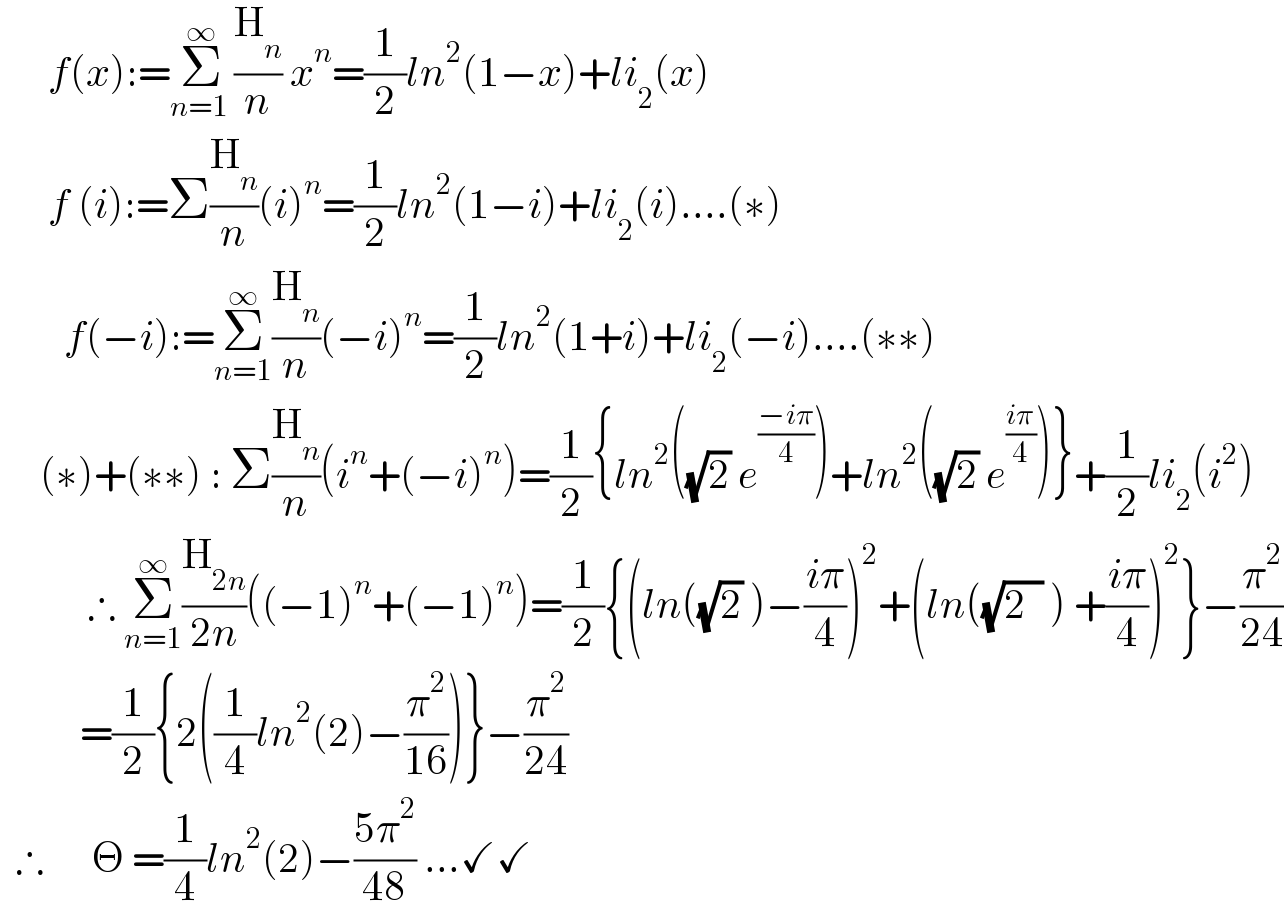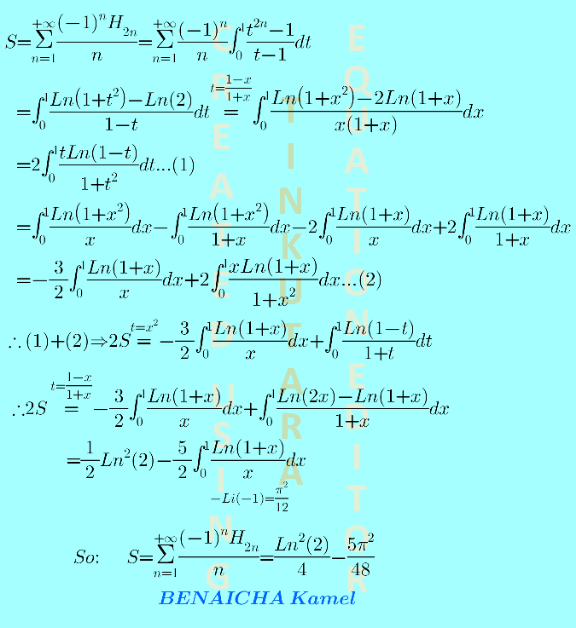Question Number 138145 by mnjuly1970 last updated on 10/Apr/21

Answered by Dwaipayan Shikari last updated on 10/Apr/21

Commented by mnjuly1970 last updated on 10/Apr/21

Answered by Ñï= last updated on 10/Apr/21
![Σ_(n=1) ^∞ (((−1)^n )/n)H_(2n) =−∫_0 ^1 (1/(1−u))Σ_(n=1) ^∞ (((−1)^(n−1) )/n)x^n (1−u^(2n) )du x=1 =∫_0 ^1 (1/(u−1))Σ_(n=1) ^∞ (((−1)^(n−1) )/n)[x^n −(xu^2 )^n ]du =∫_0 ^1 (1/(u−1))[ln(1+x)−ln(1+xu^2 )]du =.....???](https://www.tinkutara.com/question/Q138151.png)
Commented by mnjuly1970 last updated on 10/Apr/21

Answered by mnjuly1970 last updated on 10/Apr/21

Answered by Kamel last updated on 10/Apr/21

Commented by Kamel last updated on 10/Apr/21

Commented by mnjuly1970 last updated on 10/Apr/21

